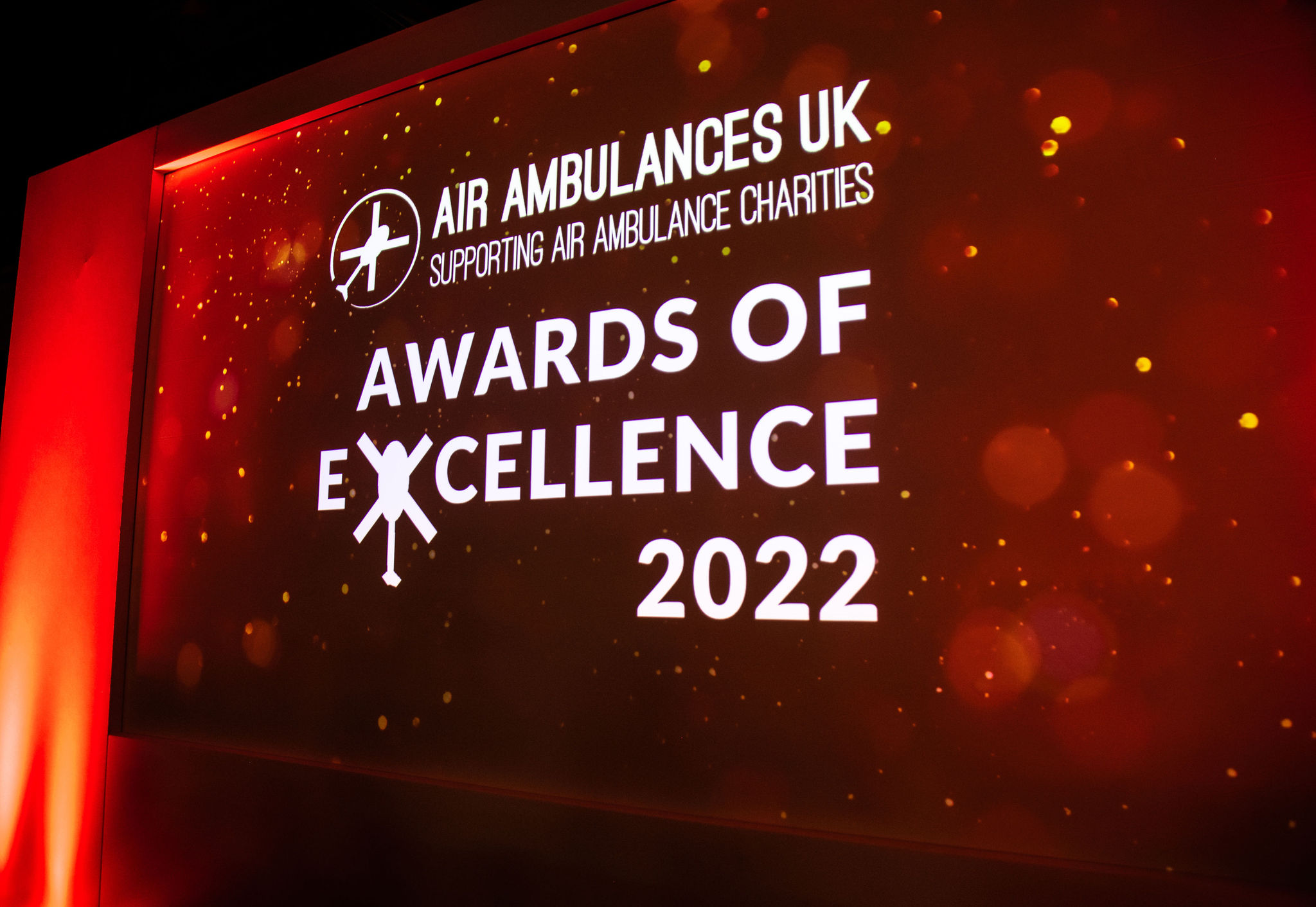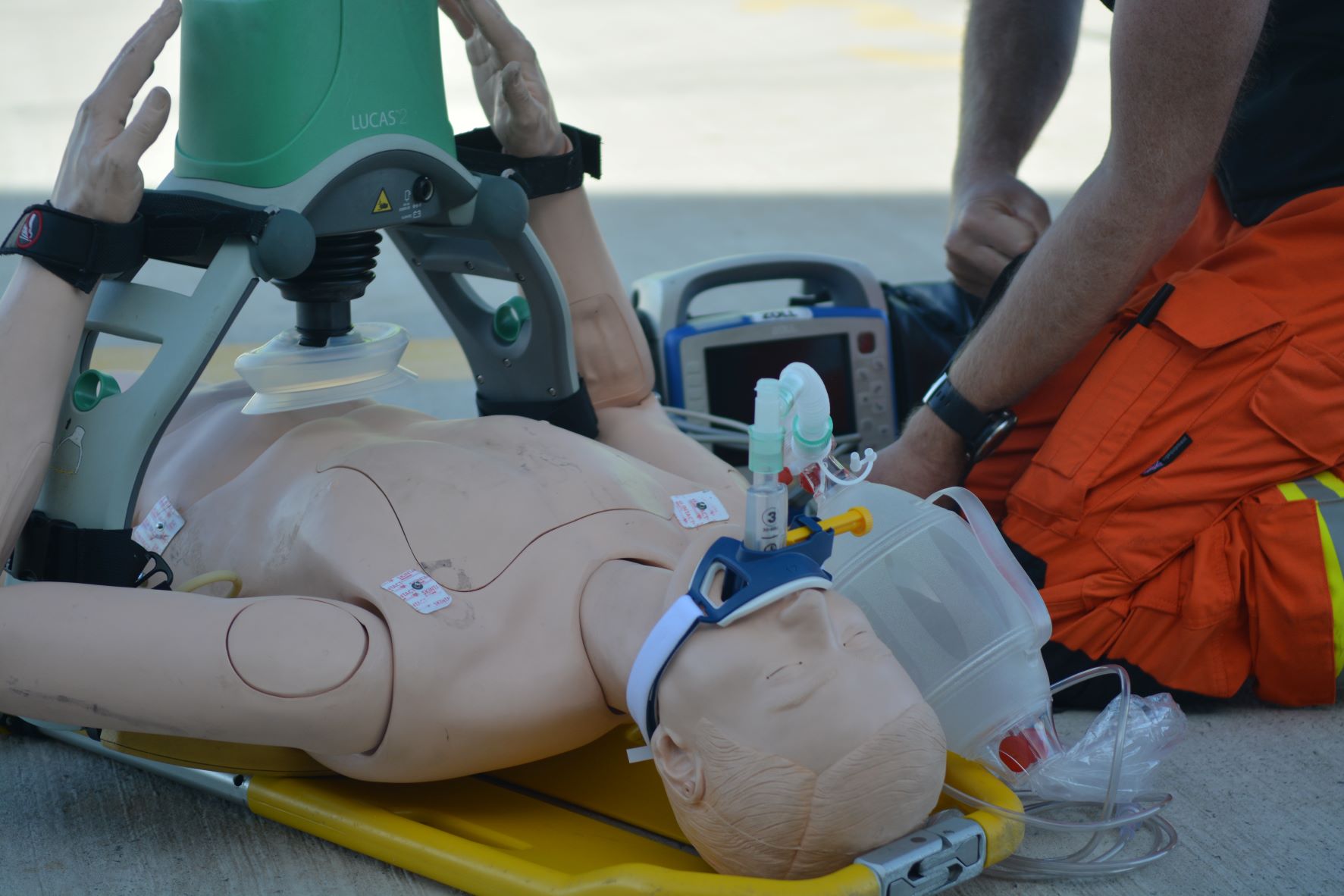
Triple award success for GWAAC
November 18, 2022
Skills plus equipment: the essentials of a lifesaving service
November 29, 2022Dr Glyn Thomas is one of the only cardiologists and heart rhythm specialists in the UK who is also a Critical Care Doctor with an air ambulance. “I guess it’s an unusual career choice for a cardiologist, especially one with a healthy dislike of flying.”
It all started about seven years ago when Great Western Air Ambulance Charity’s (GWAAC) Critical Care Dr, Phil Cowburn, noticed that Dr Glyn took a special interest in critically unwell patients in the BRI Emergency Department, not just the cardiac patients he had been called down to review. He therefore invited Dr Glyn to go on an observer shift with GWAAC and he hasn’t looked back since.
“My first GWAAC patient was a cardiac arrest. I helped resuscitate the patient at the scene, then continued their care in the hospital with an operation to implant a defibrillator. I was involved in their whole process of rescue to recovery. I was completely sold on pre-hospital care and GWAAC.”
Dr Glyn also has a personal reason for wanting to be a Critical Care Doctor with GWAAC. His best friend suffered a pulmonary embolism following a skiing accident; he was attended by GWAAC but sadly didn’t survive. Dr Glyn said: “It continues to be a great comfort to me, knowing that he had the highest standard of care given to him from the moment he was taken ill.”
What does Dr Glyn like most about being a Critical Care Doctor for GWAAC? He said: “It’s the sense of teamwork and the feeling of all pulling in the same direction for the good of the patients. Seeing the lives we save, is a huge privilege and reward. It’s also a lot of fun to be around the team, I guess humour is perhaps a coping mechanism to offset all the terrible scenes we sometimes witness.”
Dr Glyn said the generosity of donors and fundraisers also makes his job easier because it means the crew can work with the best kit available. And he’s appreciative of, “the kindness of people on scene.” Often cars will stop to offer the crew a lift and Dr Glyn has regularly been offered cups of tea, cake, use of the WC etc.” He said, “The concern of passers-by for our welfare is both touching and welcome.”
After reflecting on the missions that he has attended over the years, Dr Glyn said: “I’m proud of many jobs, even the ones that didn’t survive because we know we did our best for them and gave them a chance to die with some dignity and free from pain. Providing sedation and pain relief in those final minutes is something we can do that is extremely valuable to that person and their family.”
There’s not much that Dr Glyn would change about his GWAAC job — one of his biggest achievements to date was retraining in anaesthetics, trauma and paediatrics alongside his day job as a cardiologist to become eligible to apply for an air ambulance doctor position. He did admit however that flying in heavy turbulence is easily his least favourite part of the job!
His words of advice for anyone looking to become part of the GWAAC crew: “Persevere, because it’s a long and hard process. It’s difficult at times but it’s a hugely rewarding career. I can’t think of a more rewarding job.”
Other non-medical related facts about Dr Glyn include his reputation in the fishing world — he was Junior Fisherman of the year in 1987, and still spends lots of his free time on his boat in Bristol harbour, trying to recreate former glory with his two young sons and his dog!
In case you were wondering, Dr Glyn’s three favourite things include breakfast cereal (at all times of the day), good quality fresh coffee and world music. He hates eggs, littering and arrogance. (He also prefers just to be called Glyn, rather than Dr). When asked for a word that describes himself, he said “enthusiastic.”
Enthusiastic he certainly is with ambitions that include, “improving on and providing excellent care for the people in GWAAC’s region.”
In 2022, cardiac arrests were the most common incident we attended, accounting for 28% of our 1,808 missions. Read our 2022 mission stats blog for more information on what our lifesaving crew did last year.





